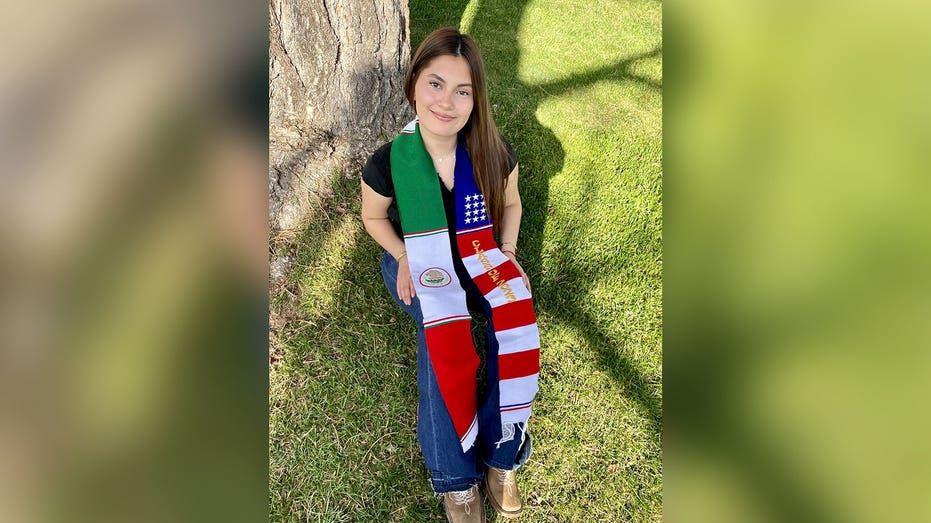A federal judge ruled Friday that a rural Colorado school district can bar a high school student from wearing a Mexican and American flag sash at her graduation this weekend after the student sued the school district.
Judge Nina Y. Wang wrote that wearing a sash during a graduation ceremony falls under school-sponsored speech, not the student’s private speech. Therefore, “the School District is permitted to restrict that speech as it sees fit in the interest of the kind of graduation it would like to hold,” Wang wrote.
The ruling was over the student’s request for a temporary restraining order, which would have allowed her to wear the sash on Saturday for graduation because the case wouldn’t have resolved in time. Wang found that the student and her attorneys failed to sufficiently show they were likely to succeed, but a final ruling is still to come.
It’s the latest dispute in the U.S. about what kind of cultural graduation attire is allowed at commencement ceremonies, with many focusing on tribal regalia.
Attorneys for Naomi Peña Villasano argued in a hearing Friday in Denver that the school district decision violates her free speech rights. They also said that it’s inconsistent for the district to allow Native American attire but not Peña Villasano’s sash representing her heritage. The sash has the Mexican flag on one side and the United States flag on the other.
“I’m a 200 percenter — 100% American and 100% Mexican,” she said at a recent school board meeting in Colorado’s rural Western Slope.
“The district is discriminating against the expression of different cultural heritages,” said her attorney Kenneth Parreno, from the Mexican American Legal Defense and Educational Fund, at Friday’s hearing.
An attorney representing the Garfield County School District 16 countered that Native American regalia is required to be allowed in Colorado and is categorically different from wearing a country’s flags. Permitting Peña Villasano to sport the U.S. and Mexican flags as a sash, said Holly Ortiz, could open “the door to offensive material.”
Ortiz further stated that the district doesn’t want to prevent Peña Villasano from expressing herself and that the graduate could adorn her cap with the flags or wear the sash before or after the ceremony.
But “she doesn’t have a right to express it in any way that she wants,” Ortiz said.
NORTH HOLLYWOOD PARENTS BOYCOTT SCHOOL DISTRICT’S PLANNED PRIDE ASSEMBLY: ‘KEEP YOUR KIDS HOME’
Wang sided with the district, finding that “the School District could freely permit one sash and prohibit another.”
Similar disputes have played out across the U.S. this graduation season.
A transgender girl lodged a lawsuit against a Mississippi school district for banning her from wearing a dress to graduation. In Oklahoma, a Native American former student brought legal action against a school district for removing a feather, a sacred religious object, from her cap before the graduation ceremony in 2022.
What qualifies as proper graduation attire has been a source of conflict for Native American students around the country. Both Nevada and Oklahoma on Thursday passed laws allowing Native American students to wear religious and cultural regalia at graduation ceremonies.
This year, Colorado passed a law making it illegal to keep Native American students from donning such regalia. Nearly a dozen states have similar laws.
CLICK HERE TO GET THE FOX NEWS APP
The legal arguments often come down to whether the First Amendment protects personal expression, in this case the sash, or if it would be considered school sponsored speech, and could be limited for educational purposes.
























